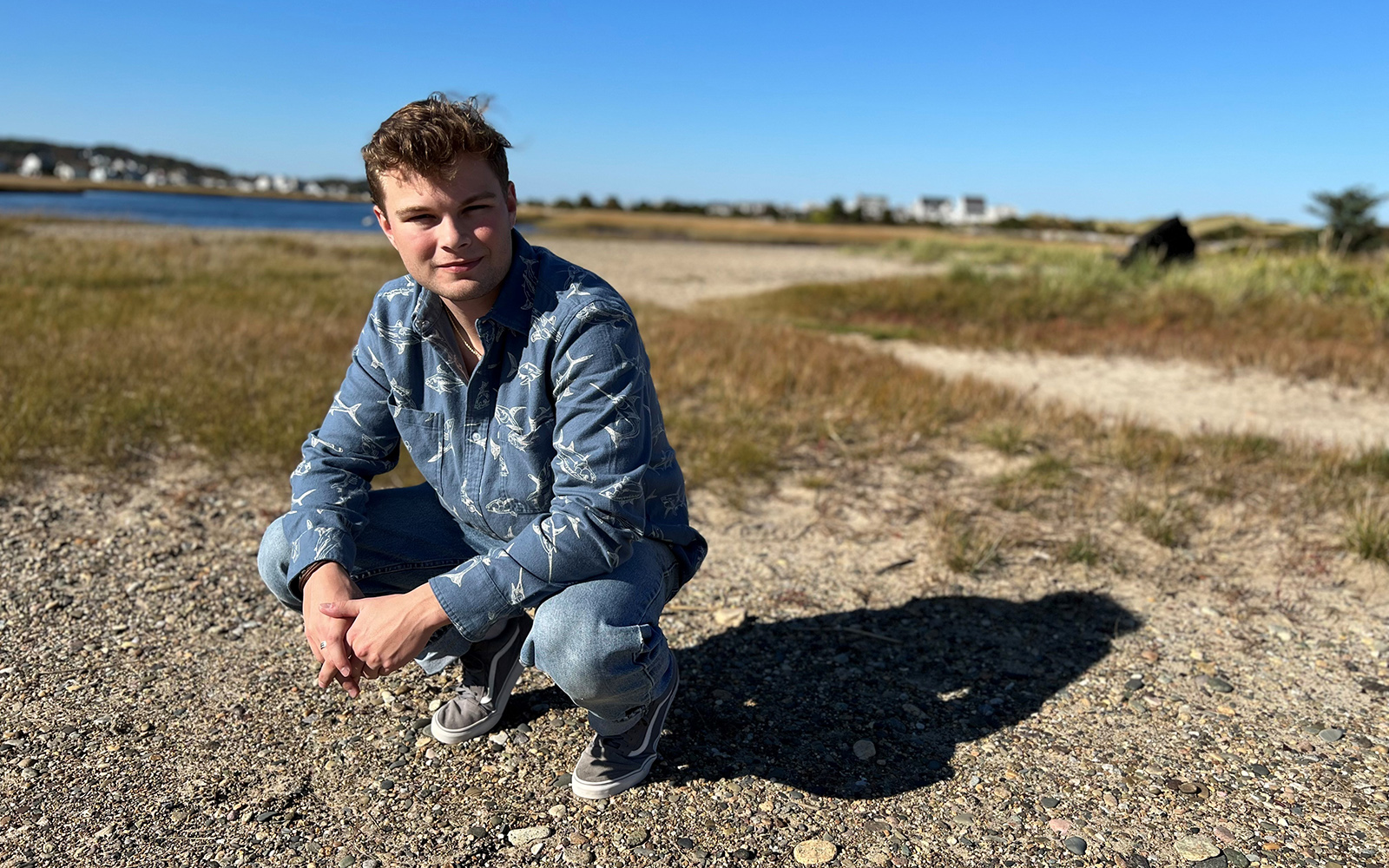
Zachary ‘Zac’ Will is an avowed summer soul, the kind of guy who complains when the weather dips below 75 degrees and the sun sets at dinner time.
But fall is quickly becoming his second-favorite season, because that’s when sales of his distinctive Hawaiian-print men’s flannel shirts skyrocket.
The UConn senior, and management and entrepreneurship major, has new patterns which he is selling through his company, Kona Brand. He juggles the business between his Storrs dorm room and his permanent home in Marshfield, Mass., on the South Shore.
“The flannel industry has been producing the same drab colors and patterns for more than 150 years. It’s time for change,” Will said. “I’m bringing new looks to the industry with flannels that make people smile, especially in New England where the winters are long.”
He came up with the idea for the clothing line during a late-summer jaunt to the beach in 2018 with his father, David, who was wearing a Hawaiian shirt, while Will donned flannel. His father was chilly and that’s when Will thought of a creative solution: create a flannel shirt with all the fun of the tropics.
This month, he is introducing two new patterns, one with swordfish and sharks, the other with palm trees and islands.
Sales are Up 35 Percent This Year
Most of Kona Brand’s advertising is done via a 1,500-member subscription database, which has grown significantly thanks to recent interviews on WBZ-Boston and the Patriot Ledger (Quincy, Mass.) newspaper. His sales are up about 35 percent from this time last year.
“My typical customer is a mid-life woman, buying shirts for her husband or her sons,” he said. Will, 22, plans to devote his full energy to the company after his graduation in May 2023. His next goal is to garner more publicity for his brand, and to move forward with plans for a line of women’s shirts.
Kona Brand is named after one of the Will family’s three dogs. Kona, a Rhodesian ridgeback, was adopted from Puerto Rico after he was found roaming the streets there.
“At Kona Brand, we promote the idea of living a care-filled life surrounded by people and things we care deeply about,” Will said. “One of the things I care about it my rescue dog, Kona, and that’s why with each Kona Brand purchase, we donate 10 percent of the proceeds to help find homes for rescue dogs.”
Entrepreneurship Started Young
Will said he has been an entrepreneur since he was a child, selling jumbo boxes of candy on the beach (“I would leave the beach with $100 or $120 in my pocket and for a 12-year-old kid, that’s Bill-Gates level.”).
Since becoming a UConn student, Will has participated in a series of entrepreneurship programs and competitions, including Get Seeded, Innovation Quest, and the Connecticut Center for Entrepreneurship & Innovation’s (CCEI) Summer Fellowship. Through those experiences, he learned to build a solid business plan and how to speak with confidence in front of a crowd.
“The main thing I learned over this almost five-year journey is to be comfortable being the dumbest person in the room and asking dumb questions,” Will said. “Going into the clothing industry, I didn’t know any of the terminology or the process to make an article of clothing. Over time, after lots of questions, I learned a lot about the industry.”
“One thing I would recommend for people to do if they are interested in this industry is to call as many manufacturers and industry coaches as possible,” he said. “They are more than willing to talk to people who want to learn about the field.”
An unexpected surprise for Will has been the joy of working with his younger brother, Lucas, a high school student, who is creating t-shirts and sweatshirts to the retail lineup.
“Our parents love that we’re hanging out together and always talking,” Will said. “Business can be stressful and tedious, including talking with the manufacturer for months, but it has been fun working with Lucas and making designs. We’ve gotten even closer after working on Kona Brand together.”
Semester in Europe Offered New Vantage Point
Will has never been uncomfortable with trying new experiences, but spending last semester in Paris was life-changing, he said.
“Paris made me a better business person, and more cultured. My family told me I’d matured when I returned,” he said. “I traveled on my own, managed my time, and became more conscious about people in general. I learned to deal with language barriers and experienced what it was like to be a foreigner. I wanted to experience something completely new—and I did.”
His travels also took him to Portugal, Spain, Amsterdam, Italy and Malta.
“From a professional perspective, I learned a lot more about how European cultures differ from ours,” he said. “For example, most stores in Paris didn’t open until 10:30 or 11 a.m. and closed around 4:30 or 5 p.m. I spoke to a French worker in my abroad program that stuck with me that I think is pretty accurate about the differences in our cultures.
“‘We work to live, but Americans live to work,'” she said. Personally, I enjoy my job, so I don’t mind the late nights or early mornings as much, but I also envy their daily work schedules,” Will said.